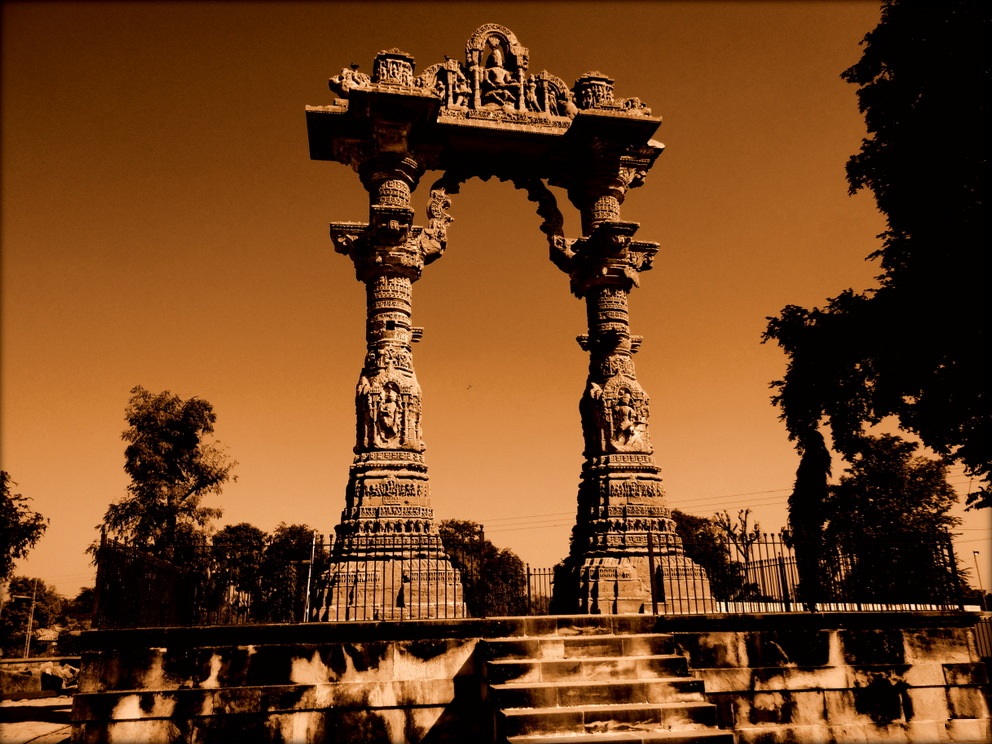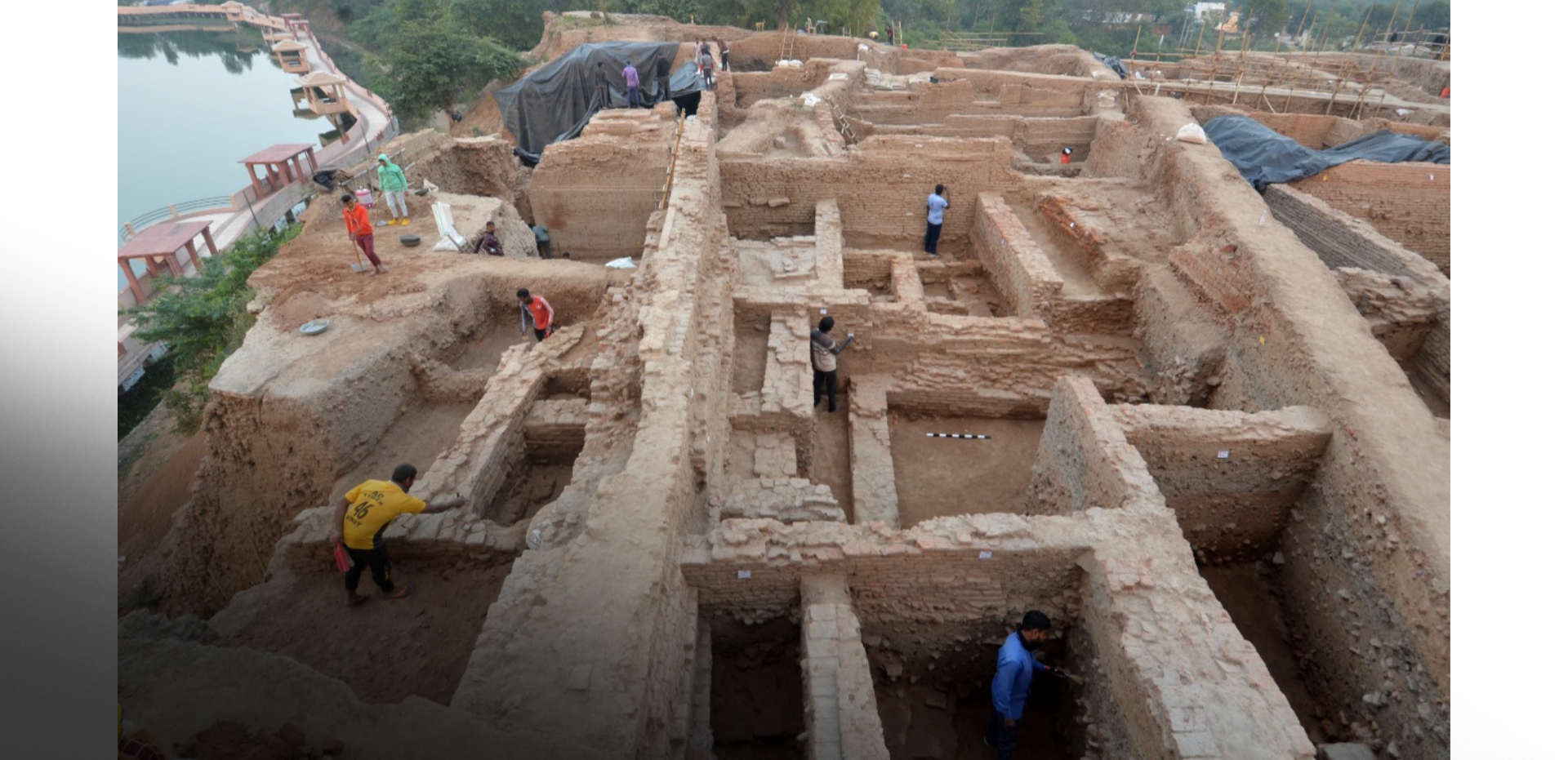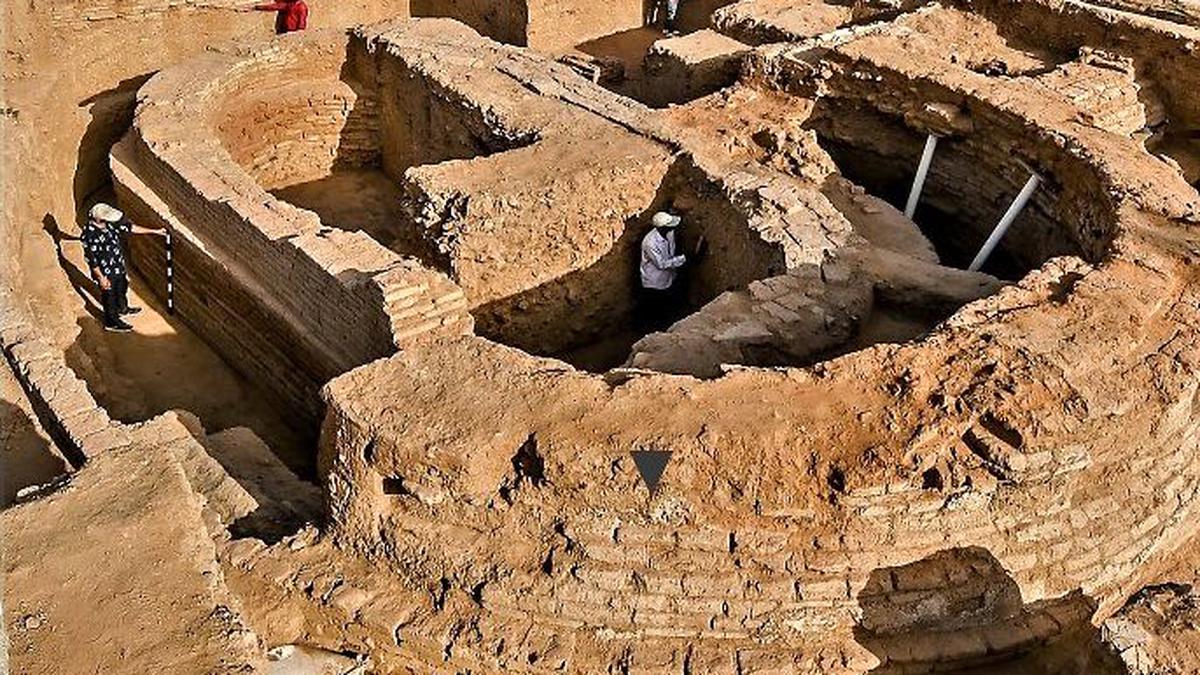A recent collaborative study conducted by the Indian Institute of Technology Kharagpur has uncovered compelling evidence of cultural continuity in Vadnagar, the hometown of Prime Minister Narendra Modi, even following the collapse of the Harappan civilisation.
This discovery challenges the notion of a “Dark Age,” suggesting that the continuity of culture persisted through the ages.
Vadnagar: A Town Enriched in History and Culture

Vadnagar emerges prominently in ancient texts such as the Puranas and finds mention even in the famous travelogue of the Chinese explorer Hieu-en-Tsang, dating back to the 7th century.
Described as a prosperous and vibrant town, Vadnagar’s historical significance is further emphasised by inscriptions on the Arjun Bari Gate, revealing that King Kumarpal fortified the city in 1152 AD.
Throughout history, Vadnagar has been known by various names, including Chamatkarpur, Anandpur, Snehpur, and Vimalpur.
The archaeological excavation in Vadnagar
The in-depth archaeological excavations in Vadnagar, led by a consortium of researchers from IIT Kharagpur, the Archaeological Survey of India (ASI), the Physical Research Laboratory (PRL), Jawaharlal Nehru University (JNU), and Deccan College, have revealed traces of a human settlement dating back to 800 BCE.
This period aligns with the late-Vedic/pre-Buddhist Mahajanapadas or oligarchic republics, adding a significant layer to the historical narrative of Vadnagar, as highlighted in a press release distributed on Friday by the institute.

The excavation efforts in Vadnagar are not just uncovering a seamless continuum of early historic to medieval archaeology and redefining the city as a vibrant urban centre that predates Buddhism and Jainism.
Professor Anindya Sarkar, the study’s lead author, asserts that recent radiocarbon dating results point to Vadnagar potentially having an age as ancient as 1400 BCE.
This revelation challenges the conventional understanding of a presumed “Dark Age” that was believed to exist between the collapse of the Indus Valley civilisation and the emergence of Mahajanapadas.
What is the Dark Age?
The interval between the decline of the Indus Valley Civilisation and the advent of the Iron Age, marked by the emergence of cities such as Gandhar, Koshal, and Avanti, is frequently illustrated as a Dark Age in archaeological narratives.
For years, the Dark Age has been characterised by limited archaeological evidence, historical uncertainties, and the perceived decline of urban centres, leading to de-urbanisation and population contractions.
However, the excavation in Vadnagar paints a divergent narrative, challenging the conventional understanding of this enigmatic period.
The findings suggest a remarkable cultural continuity in India spanning the last 5500 years, raising the possibility that the so-called Dark Age might be more of a historical myth than an accurate depiction of the past.

The research team’s comprehensive findings unveil Vadnagar as a city that thrived across multiple cultural epochs, spanning the Mauryan, Indo-Greek, Indo-Scythian, Hindu-Solankis, Sultanate-Mughal, and Gaekwad-British colonial eras.
This enduring vitality challenges the prevailing notion of a stagnant or regressive Dark Age in Indian history, highlighting Vadnagar’s resilience and adaptability through diverse historical periods.
Professor Anindya Sarkar boldly proclaims that Vadnagar’s claim as the oldest continuously inhabited city within a single fortification in India disrupts established perceptions about the supposed discontinuity and stagnation during what has conventionally been labelled a Dark Age.
The ongoing excavation enriches the understanding of Vadnagar’s historical trajectory and prompts a broader reevaluation of historical timelines. The city’s narrative questions the existence of a prolonged Dark Age, urging scholars to revisit and reassess the dynamics of historical settlements during this intriguing period in India’s past.

The research team’s endeavours underscore the necessity for a more nuanced comprehension of India’s ancient history, challenging the conventional view of the so-called Dark Age as an obscure period. Instead, their findings propose that this era was characterised by cultural resilience, adaptation, and continuous development.
Professor Sarkar emphasises that Vadnagar’s roots extend back to a time predating Buddhism and Jainism, emerging around 800 BCE during the early Iron Age or Late Vedic period.
The research team delved into understanding the reasons behind the settlement’s early inhabitants, contemplating the possibility of migration spurred by the Meghalayan droughts, which contributed to the collapse of numerous Harappan cities.
The team gleaned valuable insights into past rainfall and seasonality through isotope analysis of oxygen in freshwater mollusc shells from the Vadnagar archaeological site.
The results suggest that settlers arrived during a period marked by strengthened monsoons post-Meghalayan, shedding light on the environmental factors that may have influenced the city’s early development.











